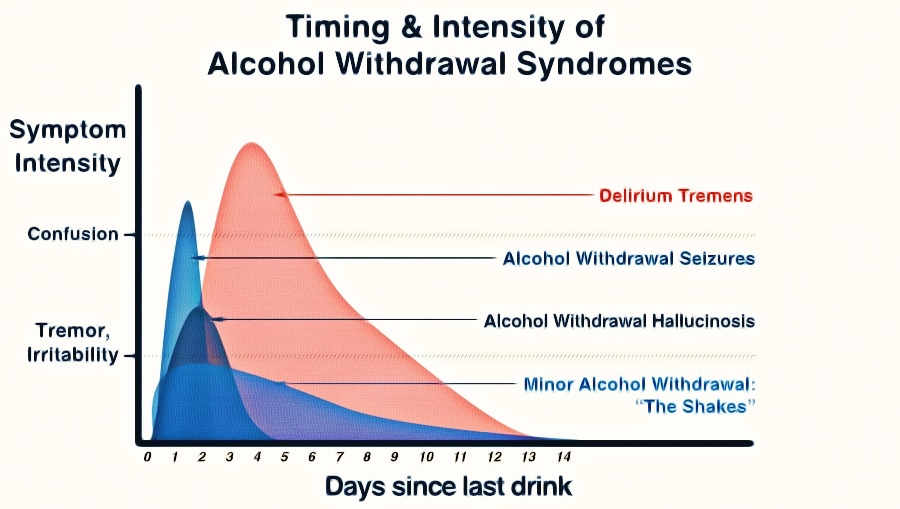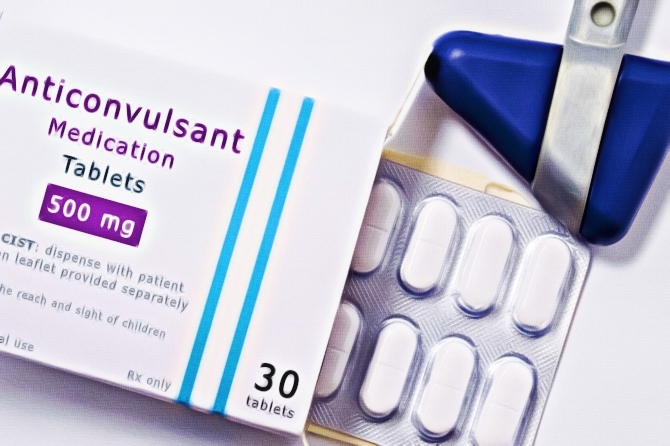Alcohol use disorder is a tough condition for any person and their loved ones to live with. Aside from its potential to cause debilitating health problems, it can negatively affect positive relationships. That being said, it is not impossible to deal with; those who have had alcohol addictions in the past have been able to break free from their dependence to live fulfilling and meaningful lives.
It takes the help of a rehabilitation center, which can provide a strong support structure and a path forward for those suffering from alcohol addiction. However, this involves a complex process. Learn more about alcohol withdrawal timeline and symptoms.
Signs of Alcohol Withdrawal
Alcohol withdrawal is a series of physiological changes the body goes through when a person stops drinking after heavy consumption over a prolonged period. It occurs in those who have developed a dependence or addiction to alcohol and other substances. Essentially, it is the body and brain attempting to rebalance its internal chemistry so that it can live without alcohol.
Depending on the severity of the dependence, individuals going through withdrawal might suffer the following symptoms: anxiety, shakes, insomnia, nausea, and so on. It can even trigger life-threatening health complications in those with more severe addictions. As such, it is important to enlist the aid of professionals at a rehabilitation center.
This is not a process any person recovering from addiction should go through alone, not only because of the need for emotional support, but because their health may be at risk.
Developing an Alcohol Addiction
Alcohol interacts with specific sections of the brain. More specifically, it stimulates the body’s production of endorphins, which are hormones associated with happiness, elation, and reward processing. This is why individuals going through complicated periods in their life are more susceptible to addictions. Alcohol can give them the joy that they are missing at the moment.

The problem with this is that the receptors with which alcohol interacts eventually develop a resistance to the effects of the drink. That means individuals will need to drink more and more to achieve the same effects they used to enjoy. Not only that, but the repeated exposure to alcohol can have an effect of making other enjoyable and rewarding activities pale in comparison. More often than not, this is why addicts often eschew their old lives in favor of one focused on drinking.
This is the main reason why alcohol addictions develop, and why the body has such a negative initial reaction to being separated from the drink. Essentially, long-term alcohol consumption alters the chemistry of your brain, forcing you to depend on it to feel any semblance of joy and happiness.
Once the brain is able to achieve some form of balance again, the symptoms should fade. However, this does not mean that it would be safe for a formerly-addicted person to drink again. As much as possible, alcohol consumption should be fully avoided for the rest of their lives if possible.
Alcohol Withdrawal Timeline
Withdrawal can begin as early as two hours after your last drink. This is why individuals suffering from alcohol use disorder hide caches of alcohol on their person, at work, and in their home. The need for access is immediate and constant, and the symptoms of withdrawal will just get worse and worse the longer they go without alcohol.
Though the symptoms are different for everyone, they usually peak within the first 24 to 48 hours from cessation. Insomnia, rapid heartbeat, tremors, sweating, blood pressure spikes and dips, and fever are among the possible symptoms.

There are three main stages of the alcohol withdrawal timeline. During the first stage of withdrawals, individuals tend to exhibit mild symptoms which are anxiety, tremors, insomnia and even heart palpitations. When individuals head into the second stage, they will begin to show more moderate symptoms.
The symptoms one may experience in stage two would be confusion, abnormal breathing, increased blood pressure and heart rate and even hypothermia. This stage of alcohol withdrawal timeline symptoms can take place between the first few days of abstaining from alcohol. Even after a few days, individuals can still experience withdrawal symptoms up to a week. During stage three, individuals will exhibit severe withdrawal symptoms where one may begin to hallucinate, develop seizures, have impaired attention and may be very disoriented.
With symptoms like this, it is strongly advised to seek help from professionals to help aid in alcohol withdrawal and detox.
Alcohol Withdrawal Seizures
It is not unheard of for someone suffering from alcohol withdrawal to experience seizures. In the first 6 to 12 hours after ceasing alcohol, a person recovering might experience agitation, anxiety, headaches, shaking, nausea, and vomiting. By the 24th hour, they might experience disorientation, hand tremors, and even seizures.
Other Alcohol Withdrawal Symptoms
Some may encounter these in low intensities, others might experience more severe side effects. Delirium tremens, for example, can surface within the first 48 hours after your last drink. This is characterized by confusion, severe shaking, hallucinations, and high blood pressure. This can be dangerous without the help of medical professionals.
More often than not, the symptoms are more severe for heavier drinkers. This makes medically-assisted detoxification of paramount importance.
The situation generally improves within a week, but a rare few might experience prolonged symptoms. It all depends on how severe the addiction was prior to cessation. Any number of pre-existing conditions might also complicate this process.
Alcohol Withdrawal Medication
Depending on your condition, a doctor might prescribe medications to help mitigate the intensity. Some of these might be:
- Benzodiazepines. These are sedatives normally used in alcohol detox treatment. They include diazepam and chlordiazepoxide, and may be dosed every 1 to 2 hours. The frequency of this, however, is dependent on the severity of the symptoms and the evaluation of medical personnel. Great care is taken in the use of this drug as it can also lead to a physiological dependence. More often than not, the taking of this is tapered off as soon as the symptoms begin to wane.
- Phenobarbital. This type of barbiturate is not normally used for alcohol withdrawal, and is only used in highly structured environments. Phenobarbital is highly addictive and overdoses might be fatal, so doctors are often hesitant to use this unless absolutely necessary.
- Anticonvulsants. If the patient is unfortunate enough to experience seizures during their recovery process, anticonvulsants might be administered. However, these medications are less effective if the seizures are severe.

- Clonidine and beta-blockers. These are used to treat autonomic arousals such as hypertension and high body temperature, and are often used in tandem with benzodiazepines.
- Antipsychotics. If the patient experiences hallucinations, delusions, and agitation during withdrawal, these medications might be prescribed by a doctor. These do, however, make the threshold for seizures lower. That means the patient will have a higher risk of them, so close observation is necessary.
Alcohol Addiction Treatment
Before you go on your journey of recovery, it might be important to take it slow if you have been drinking heavily for years. Consult your doctor before quitting cold turkey, or check yourself into a rehabilitation center that is equipped to handle severe cases of alcohol use disorder.
Such facilities will likely devise a recovery program that will wean you from the alcohol in a safer and better way. Not only that, but the professionals at such rehabilitation centers are trained to observe and manage your symptoms in more effective ways. Not only that, but they also have the appropriate support systems for the difficult road ahead.
After all, recovery isn’t just about removing the alcohol from your system. It is about preparing you to live a life that avoids the risk of addiction constantly. It will also prepare you for the hard work of dealing with the damage you’ve caused as an addict, whether financial, emotional, or psychological.
As we’ve mentioned before, dealing with alcohol use disorder is a difficult road. The process, in many cases, can take multiple attempts before becoming successful. Not only that, you are likely to experience the difficulties of withdrawal along the way, especially if you were a heavy drinker.
https://www.health.harvard.edu/a_to_z/alcohol-withdrawal-a-to-z
















